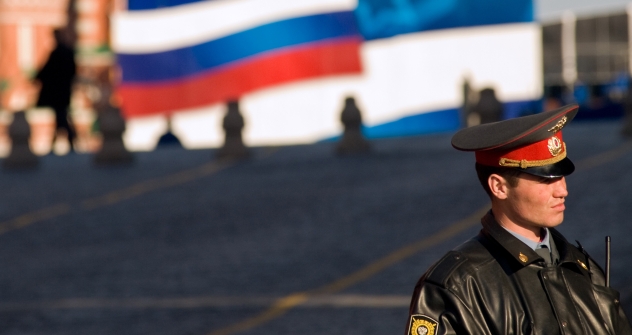Russian police poised for new reform

The Russian authorities are going to reassess the reform on the Interior Ministry to improve the efficiency of the country's police. Source: AFP / East News
The Russian police force is again in need of reform. According to experts, the measures taken under former Interior Minister Rashid Nurgaliyev have been ineffective, and a new wave of reform will be carried out under new Interior Minister Vladimir Kolokoltsev with help from outside consultants.
Sociologists say that the country’s top cop has his job cut out for him. According to a Levada Center poll conducted in April, eight out of 10 Russians are afraid of police arbitrariness. Only one in three respondents feels confident in their interactions with the police. The indicators remain virtually unchanged since 2010.
Experts interpret these figures as positive proof that Minister Rashid Nurgaliyev’s reform has failed.
“As I see it, there has been no reform of the Interior Ministry, only a set of declarations,” said Alexander Khinshtein, deputy chairman of the State Duma Security Committee. “There are only two positive things: pay raises for policemen and codification of the laws on the police. The reform failed to solve the key tasks – to determine the new police structure and its role in the internal affairs system. The system has not been purged of incompetent and unworthy employees.”
Indeed, one of the most discussed reform elements was the assessment of police personnel for professionalism. As a result of this assessment, the police force shrank by 22 percent. However, Mikhail Pashkin, the head of the Law Enforcement Workers Union, said that most of these cuts came in the ranks of policeman on the ground while the bloated administrative staffs, especially in the regions, have been left virtually untouched. Russia is still among the world’s leaders in terms of the number of policemen per capita, coming third after Belarus and Brunei.
Additionally, the system for evaluating police performance by the number of cases opened and solved remains in place. Kolokoltsev intends to focus on this problem in the next stage of the police reform. “For us, it should be the starting point,” Kolokoltsev told journalists recently. “The quality of our departmental statistics leaves much to be desired and the very system for filing applications with the police needs to be streamlined.”
For help in this task, Kolokoltsev is looking for public support in the shape of a special task force consisting of prominent human rights activists, lawyers and public personalities.
The ministry has many plans, but they are somewhat vague. They include verifying the validity of the decision to liquidate city and village police departments and optimizing the structure of the Interior Ministry’s central staff. The task force will next concentrate on “developing forms of cooperation with human rights organizations” and “organizing a dialogue with the opposition during mass civil actions.”
Individual experts have more specific proposals. The members of the task force prefer practical steps for preparing for the new stage of police reform, some of which were aired during the Interior Minister’s meeting with civil activists in July.
Valentin Gefter, Director of the Human Rights Institute, advised Kolokoltsev to carry out another assessment, “not as sweeping as the previous one, but more targeted.” He proposed setting up an independent interagency service to which citizens could complain about unlawful police actions.
Lawyer Anatoly Kucherena came up with a more realistic proposal. He suggested that every police precinct have special rooms where citizens could write complaints about a crime. The most succinct and realistic comments came from Vladimir Ovchinsky, who was recently appointed as an assistant to the Interior Minister. He thinks the task facing the working group is simple: “We are not inventing anything, we will do simple things. Put the business of crime registration in order and reform the structure. Elementary order must be restored,” said Ovchinsky, who is a former police major-general.
This opinion is shared by the head of the police union. “Kolokoltsev has to restore what has been destroyed and to build up something new,” said Pashkin. “Imagine a crumbling house that needs to be restored and have its layout changed at the same time.” For Pashkin, the most important thing is that, this time around, the police have given up their usual manner of solving their problems behind closed doors and are ready for dialogue.
All rights reserved by Rossiyskaya Gazeta.
Subscribe
to our newsletter!
Get the week's best stories straight to your inbox